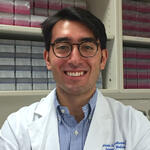Investigating the fundamental mechanisms of heart failure
Cardiovascular diseases are the leading cause of death in Germany and worldwide. This includes heart failure and, in particular, a type of heart failure called heart failure with preserved ejection – HFpEF in short –, a morbid condition for which we have no evidence-based therapies.
Dr. Gabriele G. Schiattarella has dedicated his scientific carrier to understand the pathophysiological mechanisms of HF in general and to HFpEF in particular. As a new junior group leader, he will now set up – with support from the German Centre for Cardiovascular Research (DZHK) – a research lab focused on “Translational Approaches in Heart Failure and Cardiometabolic Diseases” at the Max Delbrück Center for Molecular Medicine (MDC) and Charité – Universitätsmedizin Berlin.
Gabriele G. Schiattarella
Worldwide, one in ten people over 40 years of age will suffer from HFpEF, which is projected to be the most common form of HF in the years to come. In HFpEF, the pumping power of the heart is relatively conserved, however, the cardiac muscle is too stiff to relax properly, rendering it unable to fill adequately and to supply the body with enough oxygen and nutrients. Subjects with HFpEF experience reduced exercise tolerance and accumulation of fluid in the lungs and in the rest of the body with the result of progressive shortness of breath. Indeed, it has been said that HFpEF is the single greatest unmet need in cardiovascular medicine.
Unraveling the molecular mechanisms of heart disease
Schiattarella seeks to change that. “We are just scratching the surface when it comes to the mechanisms that underlie this syndrome,” says the cardiologist. “I want to understand how metabolic changes and inflammation contribute to the development of HFpEF.” In doing so, he wants to pave the way for the creation of more effective therapies.
The Italian scientist studied medicine at the University of Naples Federico II before specializing there in cardiology. The time he spent in the biochemistry laboratory sparked his passion for experimental research. In 2015 he moved to the University of Texas Southwestern Medical Center in Dallas in the United States, where he completed his PhD in clinical and experimental medicine in 2018. He has been an assistant professor of cardiology since 2019. His research focuses on experimental cardiology, especially the molecular mechanisms of heart failure.
Obese mice with high blood pressure develop HFpEF
I am fully committed to scientific academic research, and I am confident that my work at the MDC will pave the way to me becoming one of the leading scientists in the field of heart failure.
It is considered that metabolic diseases such as obesity and diabetes but also hypertension cause the heart to lose its elasticity. Moving from the clinical reality, Schiattarella has recently developed a mouse model to investigate to what extent these underlying health conditions affect the heart muscle in HFpEF. The model enables him to observe how a faulty metabolism and elevated blood pressure – caused by a high-fat diet and the administration of a compound that interfere with nitric oxide function – perturbs specific signaling proteins in the heart muscle cells. This signaling pathways may therefore be an attractive target for new pharmacological therapies.
Starting his own lab at the MDC in Berlin-Buch marks another important milestone in Schiattarella’s scientific career. “For me, this is both an incredible opportunity and a huge challenge,” he says. “It is an opportunity because the MDC’s research community and infrastructure are second to none worldwide.” He is looking forward to working with Professor Michael Gotthard, whose office is next door and who heads the Neuromuscular and Cardiovascular Cell Biology Lab, with Professor Norbert Hübner, who heads the Genetics and Genomics of Cardiovascular Diseases Lab and all the others colleagues at MDC and Charité . He also sees it as a challenge, because as the research group leader he is not only responsible for his scientific work but also for financial matters, work flows and not least the well-being of his staff. “I am fully committed to scientific academic research, and I am confident that my work at the MDC will pave the way to me becoming one of the leading scientists in the field of heart failure,” says Schiattarella.
Text: Jana Ehrhardt-Joswig






